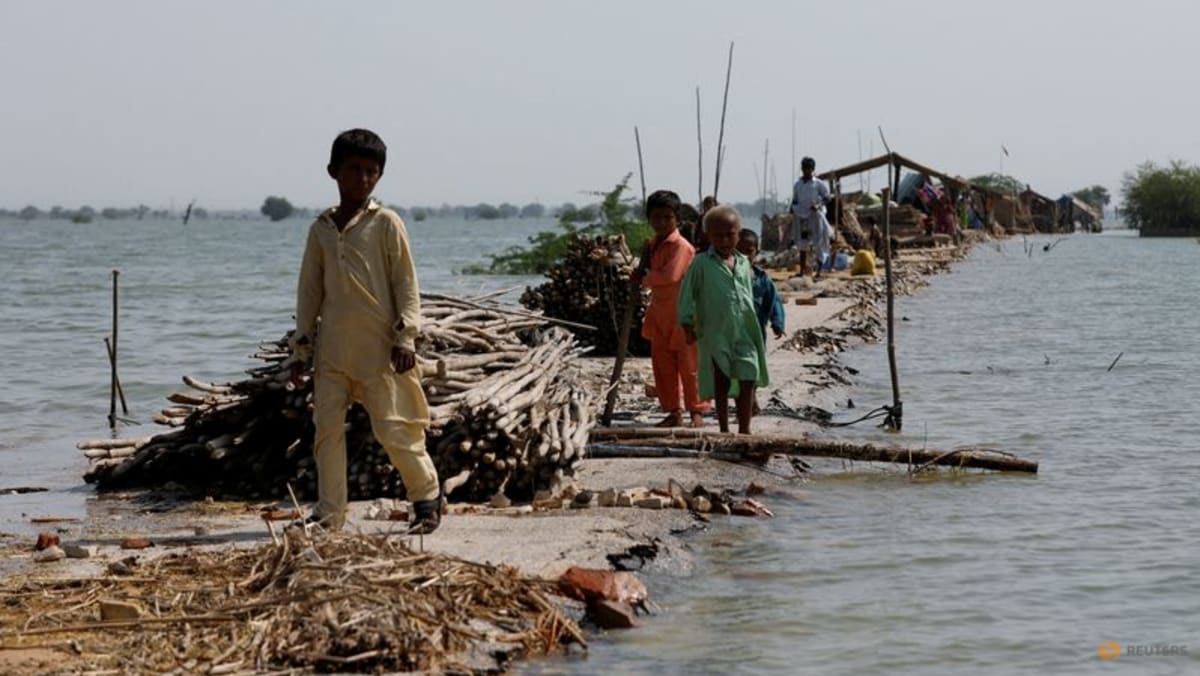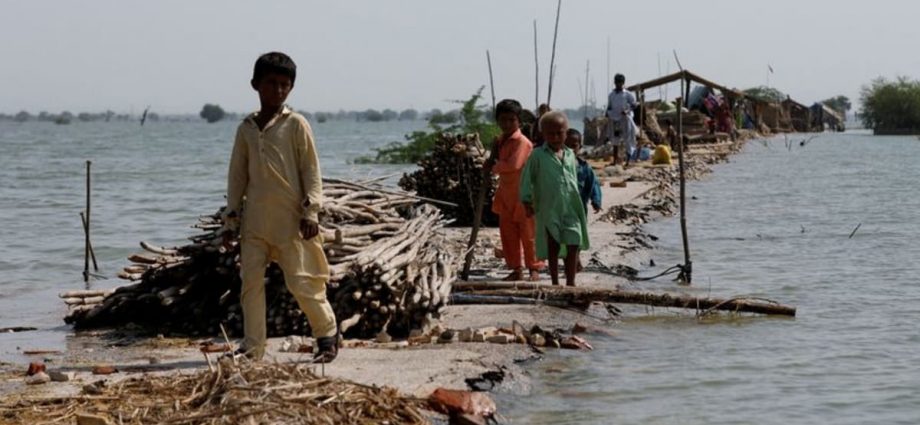
The influx has overwhelmed the country’s already weak health system. The provincial government has said that some 1,200 medical facilities were still marooned.
“We’re overwhelmed,” said Moinuddin Siddique, director at the Abdullah Shah Institute of Health Sciences at Sehwan city, which is surrounded by the flood waters, told Reuters.
Malaria and diarrhoea are out of control, he said.
Record monsoon rains and glacial melt in northern Pakistan triggered the flooding that has impacted nearly 33 million people in the South Asian nation of 220 million, sweeping away homes, crops, bridges, roads and livestock in damages estimated at US$30 billion.
Hundreds of thousands of people who have been displaced are living in the open, exposing them to the diseases spread in the stagnant waters. They are in dire need of food, shelter, clean drinking water, toilets and medicines, authorities have said.
UNICEF has termed the situation of the families “beyond bleak”.
It says an estimated 16 million children have been impacted, and at least 3.4 million girls and boys remain in need of immediate, lifesaving support.
The country received 391mm of rain, or some 190 per cent more than the 30-year average through July and August, a monsoon spell that started early and stretched beyond the usual timeline. Rainfall in the southern province of Sindh shot up to 466 per cent of the average.

